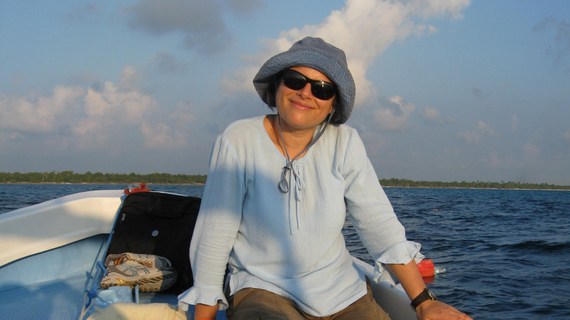If you're thinking about a career as a marine biologist, consider this advice from a highly sought after marine mammal expert and advocate, Dr. Naomi A. Rose, about the best undergraduate major.
Dr. Rose received her Ph.D. in biology from the University of California at Santa Cruz where she studied the social dynamics of wild orcas. For the past 20 years, Dr. Rose has been advocating on behalf of marine mammals; she is currently a marine mammal scientist for the Animal Welfare Institute.
I recently asked Dr. Rose what is the best major for someone who is thinking about a career as a marine biologist and she answered:
I strongly recommend a solid degree in general biology as an undergraduate. I attended Mount Holyoke College because its biology degree has an excellent reputation. Overspecializing as an undergraduate (for example, actually majoring in marine biology at a coastal school) limits one's options later in one's career and actually makes one less attractive to a graduate program.
My graduate advisor pointed out to me that the more I knew about birds, fish, reptiles and coral reefs, as well as statistics, chemistry, genetics and even environmental policy, the more valuable I would be to any research lab-or any other employer, for that matter. I did some extracurricular activities in pursuit of my interest in marine biology-I went to sea one summer as a volunteer on a Woods Hole Oceanographic Institute research vessel, took a School for Field Studies course in the Caribbean on coral reef ecology, and spent one of my junior year semesters at the University of Hawaii. My formal biology degree, however, was broad and diverse (anatomy, genetics, development, behavior, ecology, botany); and I took plenty of other science and liberal arts courses as well. In fact, I double-majored in biology and French.
Mount Holyoke College (MHC) is a highly selective liberal arts college for women in South Hadley, Massachusetts. As one of the early innovators in the area of women's education, Mary Lyon founded the college in 1837. Hailed as a top liberal arts college today, the school continues in the tradition of educating women who go on to lead amazing lives, like Dr. Rose. When asked how her alma mater helped her to become the marine biologist she is today, she replied:
I had two strong mentors in my biology program at MHC, Drs. Susan Smith and Marilyn Pryor. They fostered my interest in animal behavior and marine biology; they encouraged my academic ambitions; they advised me on extracurricular programs and served as wonderful role models for me. I had excellent relationships with other biology professors as well, including Stan Rachootin. I was challenged by their high expectations of me; but more importantly, I was encouraged to do exactly what I wanted: There were no virtual or real obstacles raised because of my gender. No one ever said to me, "You should rethink doing [insert whatever here] because women don't often succeed in that." And frankly, if they had, I would have laughed the idea that I couldn't succeed in whatever I chose to do never occurred to me. Although most of that was simply my own psychological make-up, attending MHC ensured that my ambitions and goals could thrive in a healthy, productive way, rather than be discouraged or dampened.
Women's colleges often are the best fit for many students; I encourage all college-bound high school girls to consider attending a women's college. Take the time to visit several campuses and then decide if a women's college is right for you.
If you are looking for a truly empowering college environment (in addition to strong academics), you'll find it at a women's college and Dr. Rose agrees:
When you attend a women's college, you NEVER hear "You can't do that because you're a woman." And you never have to deal with the often unconscious biases exhibited by co-ed college and university professors and administrators, who sometimes promote and encourage the ideas and ambitions of men over women. You leave a women's college confident you can do what you plan on doing. The road gets bumpier once you leave, but you have the confidence that you will navigate those bumps over the long haul.
I hope this blog post has provided you with helpful insights for pursuing a marine biology career and inspired you to investigate women's colleges. For a listing of the colleges for women in the United States, visit my blog.
